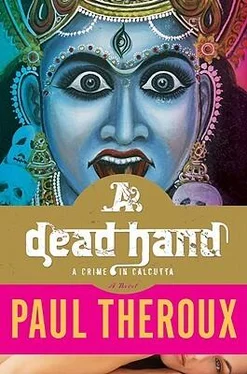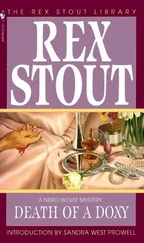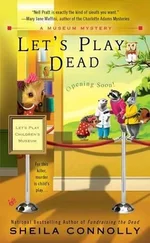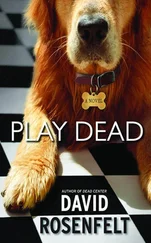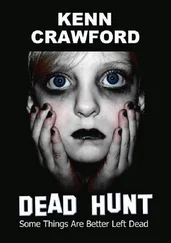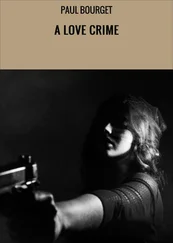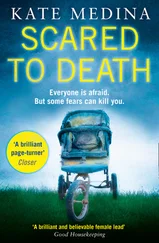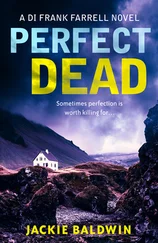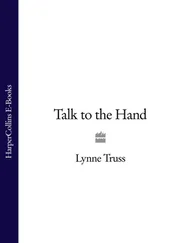"Please, sir, come with me to the entrance or they will suspect that I broke in. It will make me look so disgraceful."
Surprised by his sudden impudence, I laughed and followed him downstairs to the lobby and the front door, to make this little sneak look honest. The chowkidar was asleep, barefoot in his khakis, his truncheon like a pillow under his head. Rajat thanked me by bowing, making a namashkar with his prayerful hands, and then he fled into the yellow glare of the alley.
He hadn't found the dead hand that I had hidden in the space behind the bottom drawer — I checked this as soon as I got back to the room. He couldn't have found the carpet because it was in Dr. Mooly Mukherjee's lab. But I knew that he had been looking for any evidence I had of the corpse in his room, and to destroy it. He knew that I was on to him.
He had also done me a favor — but why? Though he denied it, he obviously wanted me to see the small girl Usha being taken away. And his saying "There are many," spoken in praise, was really an implied indictment of Mrs. Unger.
What impressed me most in all of this was that in my every encounter with Rajat, he had never said a single negative thing about Mrs. Unger. Not a word of criticism, out of respect, or fear, or both; only the most elaborate gratitude.
I slept badly, and when I woke, gasping in the heat of early morning, I remembered one other drawer I hadn't checked — my desk drawer, where I kept my notes, letters, and receipts in a folder. The letter from Mrs. Unger that had started me on this quest — handmade paper, purple ink, Dear Friend —was gone. Somehow Rajat had thieved it.
In this uncertain time, a few days after that encounter with a darker Mrs. Unger, the dramatic adoption of Usha, and the intrusion of Rajat, I had a call from Howard at the consulate.
"Dr. Mooly Mukherjee has been trying to reach you."
"I'll give him a call."
"I'm kind of curious about the result," Howard said. "That is, if you feel like sharing it."
"I'll let you know."
"I mean, the figure in the carpet."
"Right."
I called Dr. Mukherjee. He said, "It would be a lot easier if you came to HQ."
"Can't you tell me over the phone?"
"I'd rather not."
"Are there bloodstains?"
"As a policeman I have learned not to be too comfortable on the telephone," he said. He pronounced it tellyphone. "Telephones are leaky."
We arranged a time to meet for the following morning. I did not report this to Howard. He called me — somehow he knew about the appointment. He said, "Mind if I come along?" I couldn't refuse: he had helped me find Dr. Mooly Mukherjee.
Dr. Mukherjee welcomed us. "Tea or coffee?" He remarked on the weather. The monsoon was due any day now. He spoke of his family, his daughter's wish to study in the United States, altogether chatty and inconsequential in the Bengali way. At one time I would have felt he was trying to distract us because he had nothing to report. But now I knew that he wanted to engage us because he had something important to say. He was chatting because he wanted our full attention.
The piece of carpet lay in a plastic pouch on his desk like a laboratory specimen, an inked-in label stuck to the outside.
"My youngest, Shona, wants so earnestly to go to America," he was saying, stroking his mustache. "Postgraduate study. Lawrence, in state of Kansas." He said estudy and estate. "I am hoping that Mr. Howard will ask powers-that-be to look favorably on her visa application."
"Dr. Mukherjee has four brilliant daughters," Howard said, avoiding a direct answer.
"With my good wife and my dear mother, that is six women in the household. Petticoat government, you could say."
Bursting to ask, I said, "What did you find on the piece of carpet?"
"Ah, yes, the material evidence," he said, as though he'd forgotten. But his delay was an attempt to be dramatic. He picked up the plastic pouch. He held it in two hands. He said, "This is the curious incident of the dog that didn't bark in the night. You know the reference?"
"Sherlock Holmes."
"'Hound of the Baskervilles'?" Howard said.
"No," Dr. Mukherjee said, and looked delighted. "'Silver Blaze' story. Another clue is the curried mutton. About a racehorse."
"I haven't read that one," I said.
"Interesting not for what is there but for what is not there."
"Bloodstains?"
"No blood. No substantial DNA. Traces of human hair, we think."
"That's all?"
"Food. Oil. Bits of dirt and grit. Better ask" — he tugged at his mustache with his free hand—"what is not there?"
Howard said, "Okay. What's missing?"
Dr. Mukherjee manipulated the plastic pouch so that we could see the edge of the carpet, which was its true edge, with a design and a double-stitched seam. Because this was not the small fragment that Mina had sent me but the bigger stained piece I'd taken from the floor of the closet, it had a complete design and seemed altogether more identifiable.
I said, "Do you mean you can make out the whole design of the carpet from this piece?"
"Of course, but so what?" he said. "Carpets are standard designs. This is floral. Also vines. Maybe a bird on an arbor in the figure." He twitched his mustache as if to reject the notion that the design was important. "Maybe some curry gravy or ghee butter on top side." He showed me the stain. "Vegetable matter."
I was smiling at the expression, and Howard winked, as Dr. Mukherjee turned the carpet over.
"Observe seam."
"I don't see anything."
"Exactly. You see nothing." He was triumphant. "But look closely and you see double stitch and coupon stub."
"Coupon stub?"
"Strip of cloth where label has been torn off."
"Ah, the label's missing," Howard said. "So what does that tell us?"
"That someone doesn't want carpet to be identified," he said. "But they were hasty. Large piece of label is missing. Coupon stub remains in stitching. This strip."
Now he put the plastic pouch down and opened a large manila envelope. He took out a black-and-white photograph that showed a strip of pale cloth with a stitch running through it and smudges of ink beside it.
"What are those squiggles?"
"Squiggles are Devanagari script that has been cut in half by hasty removal of label from stitching."
"But bigger."
"Lab has enhanced script with photographic process. Basic forensic work, nothing special."
"So it tells the manufacturer?"
"Not manufacturer, regrettably. But see—"
He placed another piece of paper next to the bisected script and completed the word.
"— it matches."
"What does it say?"
"Place of origin."
"And that would be?"
"Mirzapur. In U.P."
I frowned, as though in frustration, so as not to reveal the panic I felt.
"You are right to make such a face, sir," Dr. Mukherjee said. "Very many carpets are made in Mirzapur. Mirzapur is carpet mecca."
"So it's a wild goose chase."
"I think otherwise. Useful chase. Some weeks ago you showed me a body part with no fingerprints — all prints abraded. I offered my opinion that this could have been the hand of a brickmaker or a worker in clay."
"I remember."
"It could also have been the hand of a carpet weaver. Making the knots all day, a person can lose his fingerprints. Perhaps the two are related."
Afterward, Howard said, "You seem a little downcast by the news. He didn't find bloodstains. Isn't that a good thing?"
"He found something more important — to me, at least. The Mirzapur connection. And the link with that hand."
"Tons of carpets are made there. You heard him."
"News to me."
"Mirzapur is full of sweatshops."
"I need to go there."
"Tell me why." When I hesitated he said, "You said you were doing a favor for a friend. Is this about the favor?"
Читать дальше
